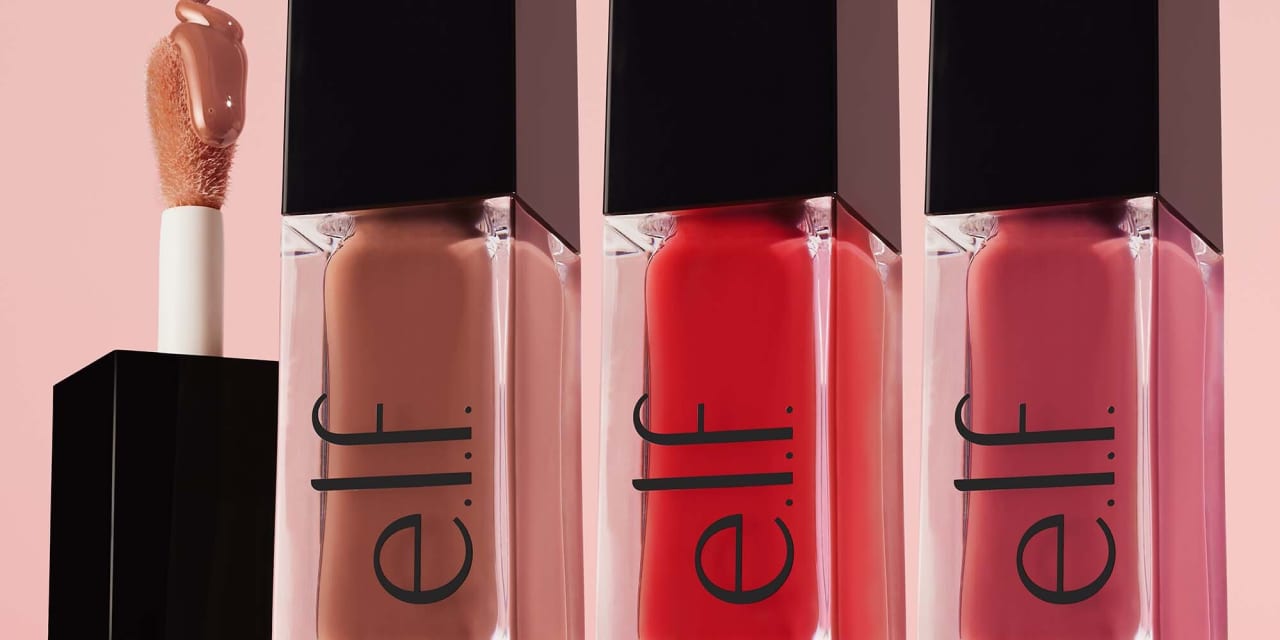E.l.f. Beauty
‘s latest financial results smashed Wall Street estimates, as demand for its low-priced cosmetic products remained strong.
The company’s beat-and-raise quarter stands in stark contrast to its higher-price competitor,
Estee Lauder,
which cut its full-year outlook on Wednesday.
E.l.f.
Beauty (ticker: ELF) posted earnings of 82 cents a share on revenue of $215.5 million for its fiscal second quarter ended Sept. 30, up from per-share earnings of 36 cents and $122.3 million in revenue in the year-ago period. Analysts surveyed by FactSet were expecting the makeup company to report earnings of 53 cents a share on revenue of $197.1 million.
The company also raised revenue guidance for fiscal 2024, which ends in March. E.l.f. now expects full-year revenue between $869 million and $906 million, ahead of its previous range of $792 million to $802 million.
Chief Financial Officer Mandy Fields attributes e.l.f.’s success during the quarter to the company’s value proposition, digital footprint, and product innovation.
“What I’m most excited about is that of that 76% revenue growth, 56 percentage points was driven by volume. So that really speaks to consumers coming into our brand, purchasing more and being more engaged,” Fields told Barron’s.
E.l.f. sells makeup and skincare products at lower prices than many other cosmetics companies, and is popular with lower-income, younger shoppers that discover most of the company’s products through social media. For instance, E.l.f. recently released new lip oils that retail for $8. A lip oil serum from prestige competitor Estée Lauder (EL) is priced at $36.
While E.l.f. raised its full-year outlook Wednesday, Estée Lauder cut its earnings and revenue guidance for fiscal 2024, which ends in June. The company cited slower growth in overall prestige beauty in Asia travel retail and in mainland China.
E.l.f., on the other hand, sells its products for lower prices and does not have any exposure in China, helping to protect it from the economic pressures there. E.l.f. products are currently sold in the U.S., Canada, the U.K., and most recently, Italy.
When asked what sets e.l.f. apart from prestige, international competitors, Field highlighted e.l.f.’s approach.
“We’re really focused on building that international strategy in a very methodical way as we go country-by-country, making sure that we find the right partners to work with and the right retailers to launch our brands,” Fields said.
The company is not immune to economic pressures, though. Shares of e.l.f. fell 10% Tuesday on investor jitters about sales. Jefferies analyst Ashley Helgans had written Tuesday that Nielsen data showed a deceleration in e.l.f’s sales growth to 45% for the latest trailing four weeks, compared 49% sales growth in the previous period.
Fields told Barron’s that in the latest four weeks, the 45% growth was versus the total category’s growth of just 1%, according to the Nielsen data.
“From my perspective, still very strong results, and so we’re really going to stay focused on the long-term opportunity that we see for e.l.f,” she said.
Write to Angela Palumbo at angela.palumbo@dowjones.com
Read the full article here













Leave a Reply